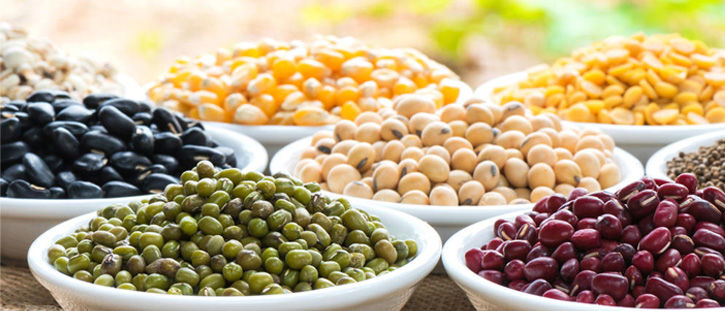11. Frozen vegetables
Try frozen vegetables like spinach, kale, cauliflower, broccoli, and corn.
Just as with fruits, vegetables are frozen at their peak, so you'll be getting the same nutritious boost of phytonutrients (plant nutrients with potent antioxidant and anti-inflammatory benefits) as you do from fresh produce. Not to mention, frozen veggies can sub the fresh kind in most recipes—just take into account that they'll release some extra liquid when thawing.
12. Canned fish
When you want to hold off on making that next grocery trip for some fresh meat, make canned tuna or salmon your go-to source of protein (besides beans, of course). Feller recommends canned fish because it's not only convenient, it's also rich in anti-inflammatory omega-3 fatty acids.
If you only keep canned tuna in your pantry for tuna salad, let this quarantine be your opportunity to try using it in new ways! We like to layer it on some crusty toast with a splash of olive oil, or mix it into pasta salads with tomatoes and olives. When it comes to canned salmon, we like it in salads and sandwiches. Sardines are great for a quick homemade pate, and anchovies . . . well, they just bring that umami burst of flavor to whatever needs it (soups, pasta sauces, and even dips).
13. Low-sodium soup
Restaurants are off-limits, the wait for takeout is an hour, and don't even get us started on how long delivery will take. If you need a quick meal when you're sick of cooking (or just sick), nothing is as healing as knowing that hot soup is just a few minutes away.
The healthiest soups will have a balance of carbs, fiber, and protein and very low levels of sodium. Our dietitians recommend these healthy Progresso soups as best canned soup options. And if you're looking to doctor up that old dusty can of Campbell's soup you've had in your pantry for months, use the different varieties in soups, pasta sauces, and casseroles.
14. Low-sodium broths
Yes, you can make soup with just about anything in your fridge and some water, but Feller recommends stocking up on low-sodium chicken, and veggie broths and using them as flavor enhancers. Just make sure they are truly low in sodium (under 150 milligrams per serving), which will help prevent bloating and reduce the strain on your heart.
You don't have to only use broths as soup bases, either. Use them to add flavor to any recipe that calls for water was a base—risottos, slow-cooker meat recipes, and sauces and gravies.
15. Olive oil
Every healthy diet should include a good amount of healthy fats. And because we're talking pantry essentials here, we can't recommend stocking up on avocados. While the fatty fruits are rich in heart-healthy monounsaturated fats, we all know they tend to go bad much faster than it takes for them to ripen on your counter.
For a shelf-stable version of healthy fats, we recommend olive oil. Feller loves how versatile olive oil is—you'll be using it to fry up crispy chickpeas, sauté veggies, drizzle on top of bread, or preserve your garlic.
16. Ginger
If you're starting to feel bloated from being cooped up inside all day, make sure to add ginger to your next grocery delivery or supermarket run. (Also, make sure you go on a walk as often as possible.)
Ginger is known for its anti-bloat properties that help soothe troubled stomachs. This root lasts a long time in the refrigerator, but you can also keep it in the freezer (which also makes it easier to grate). Use ginger in stir fries, slice it to make ginger tea, or use it to flavor soups, smoothies, and soaked oats.
17. Nuts
This includes almonds, pistachios, walnuts, hazelnuts, cashews, and pecans.
Whether you prefer them raw or ground into a butter, nuts are the perfect healthy snack when holed up at home. One of the most common responses to being bored and stressed is—you guessed it—snacking. To maintain a healthy diet, forego greasy chips, and opt for unsalted nuts instead. Feller likes nuts as a source of "protein, fiber, and vitamin E."
Besides being great for snacking, nuts and their butters are an awesome fatty flavor supplement to salads, smoothies, and baked goods.
Also Read : 17 Most Versatile Ingredients to Stockpile in Your Pantry (Part 1)
Source: www.msn.com




Contact Us